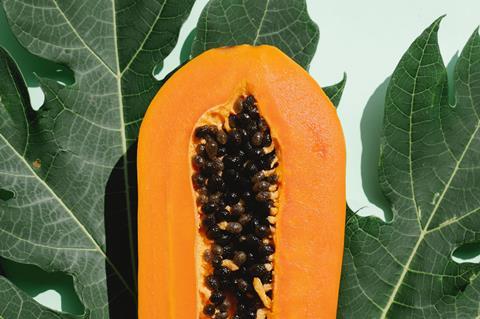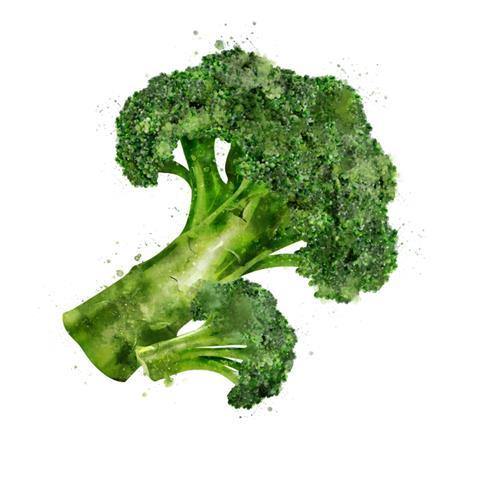Bukky Ayoade looks at how our dietary choices can help us tackle menopause symptoms

In my last article (Jan 2024), I discussed the challenges midlife women face in preparing for the menopause transition, particularly when managing careers, businesses and personal lives. In this issue I highlight how Christian women can navigate menopause, emphasising the importance of our food choices in managing symptoms, promoting overall health and wellbeing during midlife.
Why focus on food in menopause?
The Bible guides us towards wellbeing by highlighting that our bodies are temples of the Holy Spirit (1 Corinthians 6:19-20). This underscores the need to steward our bodies with care, especially during transformative seasons like menopause. Making intentional food choices becomes a way to honour and preserve the precious gift of our bodies.
Our food choices play a pivotal role in menopause symptom control, health and emotional wellbeing. Vital aspects like heart health, bone health, gut health and weight management are directly influenced by the foods we eat. While these considerations are essential for general wellbeing, the menopausal transition offers an opportunity to place a heightened focus on these aspects.

Choosing food during menopause
If I could offer just one fundamental dietary tip for menopause; I’d say: “Eat more plants.” This doesn’t necessarily mean adopting a vegan or vegetarian lifestyle, but a diet with a greater plant slant has certainly proven beneficial for me. Indeed, God provided us with an abundance of plant-based nutrition: “Look! I have given you every seed-bearing plant throughout the earth and all the fruit trees for your food” (Genesis 1:29, NLT).
A diet rich in vegetables, certain fruits, nuts, seeds, herbs and spices aids in blood sugar balance, better symptom control, supports gut health with ample fibre and provides antioxidants and anti-inflammatory properties crucial for warding off chronic diseases and boosting immunity.
While the following list of supportive foods is not exhaustive, it serves as a starting point. Protein sources like fish, seafood, poultry, eggs and plant-based options – lentils, chickpeas, beans – along with complex carbohydrates such as brown rice, cruciferous vegetables – broccoli, cauliflower – oats and fruits like berries, apples, pears contribute to a well-rounded diet. Combining proteins with complex carbohydrates at each meal or snack can help balance blood sugar levels, providing symptom control and keeping us fuller for longer, thereby also supporting weight management.
Avoiding highly processed foods, snacks high in refined sugars and being mindful of processed oils contributes to effective menopause symptom control, weight management and overall health and wellbeing. Identifying personal triggers through a food diary can also assist in making informed choices.
A Mediterranean diet is usually recommended for menopause, but individual preferences vary. Women in my community told me a Mediterranean diet didn’t suit their palette, so I created a simple Afro Meals eBook to give them options.

My own experience
The main things I have found beneficial personally are eating more plants, herbs, spices (eg cinnamon is great for blood sugar balance and lovely with porridge) and changing my eating window – this means I typically have my meals between the hours of midday and 8pm. First thing in the morning I have warm water and a lemon/apple cider vinegar mix, at 10am I consume a hot drink and a date, for meals I mainly have a brunch at midday, snack at 3pm and dinner by 6pm. If I need to eat anything after dinner, I’ll have another snack or some fruit. This approach has been great to help me deal with bloating, indigestion and many gut issues I previously suffered from, as well as my weight management. I am conscious this sort of eating window or ‘intermittent fasting’ regime might not be suited to everyone, so please consult your healthcare team before making these sorts of changes yourself.

Changing what you drink
Considering beverages is also crucial; switching from caffeinated to herbal teas and maintaining hydration with water, homemade juices/smoothies and low-sugar cordials is a smart choice. I switched from caffeinated coffees and teas, and drink mainly herbal teas, no-caffeine chicory-based coffee alternative and water.
Making intentional food choices becomes a way to honour and preserve the precious gift of our bodies
Understanding the effects of alcohol on symptoms and exploring non-alcoholic alternatives can be beneficial. Alcohol can impact sleep, flushes and general wellbeing. There are many low or non-alcoholic spirits, wines and cocktail mixers on the market to explore. I found I had to cut back on alcohol as I would feel unwell after a drink or have even more disrupted sleep.

Dating and relationships
If you are in a relationship hopefully you’ll be on the same page when it comes to food, but, even if you are not aligned yet, planning and cooking meals together can be a fun and bonding exercise; you could either do this at home or book it as a date-night activity.
If dating and going out for a meal you might like to try my approach. I have a selection of restaurants of choice so if I am asked where I would like to go on a date, I can influence the venue. I also skim the menu beforehand to know what food choices I’ll make before I get to the restaurant.
And finally
As I end, let me emphasise that the saying “food is medicine” is especially pertinent during menopause and midlife. Thoughtful and intentional nutrition becomes a key element in managing symptoms and fostering overall wellbeing. As Hippocrates said: “Let food be thy medicine, and let medicine be thy food.” Making informed and purposeful food choices during this phase is pivotal for flourishing in midlife health and wellbeing.

































No comments yet